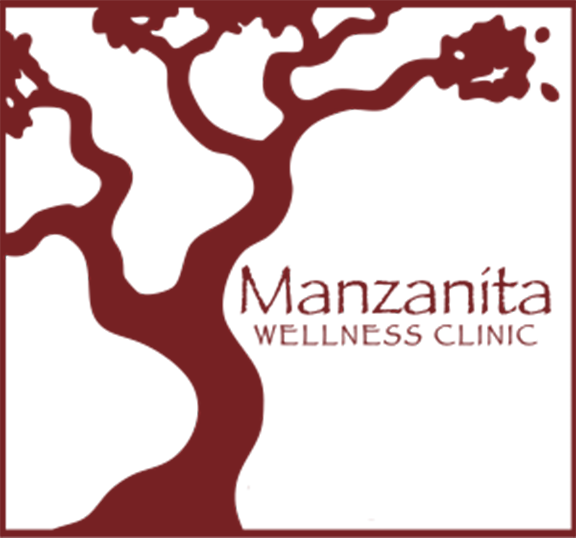Acupuncture
Acupuncture is the practice of inserting very fine needles into specific points on the body. These points correspond with an energetic network, which overlaps the nervous system and connects with our vital organs. The meridians in this intricate network are pathways of qi, the essential life energy present in every living being, which circulates throughout the body.
Each meridian connects with an organ system in the body, and each organ system is related to one of the five elements of Earth, Fire, Water, Wood, and Metal. Using acupuncture, we can bring all these elements into balance within our selves. Acupuncture stimulates certain points on the meridians to nourish health and clear stagnant energies, thus utilizing the our own qi to restore balance.
Acupuncture is part of traditional Chinese medicine, a comprehensive and effective healing system rooted in thousands of years of history, practice, careful study, and observation of nature. This medicine is based on the premise that what happens in nature also happens in our bodies. It is the fastest growing healthcare system in the world today, including acupuncture as well as herbal medicine, nutritional wisdom, living practices, movement, and other modalities such as cupping, shonishin, moxibustion, gua sha, etc. We may decide together to interweave some of these modalities with acupuncture sessions, for a powerful and integrative approach, to balance your vital energies (qi) and facilitate the your own innate healing ability.
Acupuncture is normally a gentle treatment. In sensitive areas, the patient may feel a slight pricking sensation when the needle is inserted. Once the needle contacts the body’s qi, one may feel a dull, heavy, or electric sensation at the site of the needle. Many people feel relaxed, or a sense of euphoria.
Some people experience the effects of acupuncture right away; for others, effects may not be experienced for a day or two. Certain health concerns require longer courses of treatment than others, and certain issues benefit from more frequent treatments to be most effective.
Acupuncture can address a wide variety of health conditions, including but not limited to: Acne, Addiction, Attention Deficit Disorders, Allergies, Anxiety, Arthritis, Asthma, Bedwetting, Bronchitis, Childbirth, Colds, Colic, Constipation, Coughs, Depression, Diarrhea, Digestion, Dizziness, Eczema, Endometriosis, Fatigue, Fertility, Fibroids, Flus, Food sensitivities, Gastrointestinal issues, Headaches, Heartburn, Heart Problems, High Cholesterol, High Blood Pressure, Hormone Imbalance, Injury, Insomnia, Jaw Pain, Kidney Stones, Low Back Pain, Menopause, Menstrual Cramps, Menstrual Irregularities, Nausea, Ocular Issues, Pain, PMS, Pregnancy, Post Partum, Reflux, Sciatica, Sexual Dysfunction, Smoking Cessation, Stress, TMJ, Trauma, Urinary Tract Infection, Vital Health and Wellness, Weight Loss, Worry and many more!
Community Acupuncture & Private Sessions
Community Acupuncture
Community acupuncture sessions include a brief evaluation, after which needles are inserted, in the community room.
The community room has several recliner chairs as well as pillows and blankets for your comfort. Both acupuncturist and patients may speak in whispers or low voices in this room, while peaceful music allows for a relaxed setting. Needles are usually placed below elbows and knees, or on the head, allowing patients to remain fully clothed in this room.
These sessions are appropriate for patients who are coming in for frequent treatments, as well as for anyone who would like to pay on the sliding scale. No proof of income is needed. This treatment is recommended for patients who like to have company in the room while they have their needles in, and if you don’t mind a bit of coming and going occasionally (the community area is separated from the desk and waiting area by partial screening). Community acupuncture is standard practice in China and other countries, and is a quickly blossoming movement in this country.
Private Sessions
Private acupuncture sessions mean that both evaluation and treatment take place in a private room. In private sessions, a longer amount of time is given to sharing history, talking over your past and current health, and giving recommendations.
Private acupuncture sessions are recommended for anyone who prefers a more private setting for treatment, and for patients with complex health concerns who would like to spend more time in talking about past and current health history, recommendations, and so on. Sessions may include complementary modalities such as gua sha, shonishin, moxibustion, essential oils, herbal and dietary suggestions, and cupping, among others. Some people choose to do a combination of private and community sessions.
How Often Should I Come in for Treatment?
It is rare for any acupuncturist to be able to resolve a chronic problem with one treatment. In China, a typical treatment protocol for a chronic condition could be acupuncture every other day for two months! This is not feasible for many in this country. But virtually every patient needs a course of treatment, rather than a single treatment, in order to address the root causes oftheir health concerns.
A course of treatment is suggested based on experience with treating different kinds of conditions. This might be twice a month for three months or twice a week for three weeks, etc. Coming in often enough and for a long enough course of treatment is important for an effective healing process. Herbal medicine and other self-care activities can help support the treatments in between visits.






